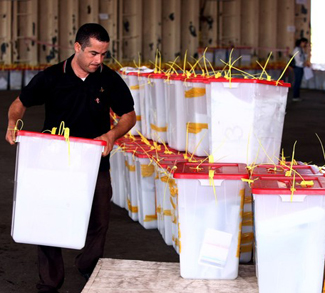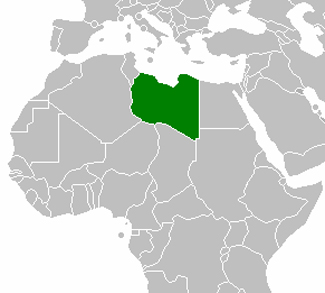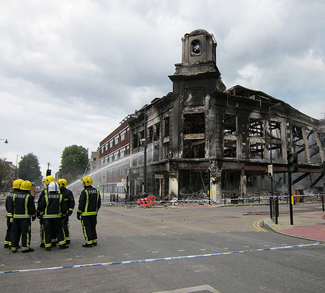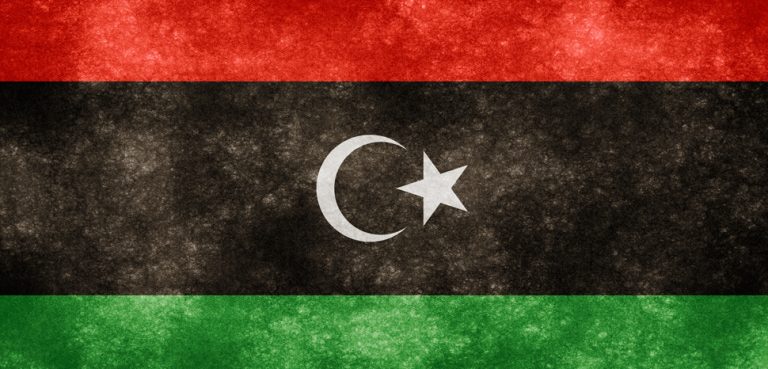On July 7th 2012, Libya held its first elections of the post-Gaddafi era. This historic event saw the moderate National Forces Alliance emerge as a surprise winner over the Muslim Brotherhood’s Justice and Construction Party. Many have been quick to trumpet the success of Mahmoud Jibril’s broad coalition as a secular victory over regional Islamist forces, though the reality is far more complex.
Results
Elections to the General National Congress were held on July 7th. This marked the first time that Libyans went to the polls since 1965. The exact nature of this electoral system was subject to months of debate and speculation, and the eventual consensus called for parallel voting with 80 seats allocated for parties and 120 for non-affiliated individuals.
The National Forces Alliance (NFA) has emerged as the election’s biggest winner, taking 39 of the 80 party-list seats. The NFA is led by Mahmoud Jibril, a Western-educated economist who led the wartime National Transitional Council and came to be seen as the face of the opposition. A diverse political alliance of around 60 moderate parties, the coalition is often taken to be secular, though the NFA rejects this label. What is certain however is that The NFA wants to move forward with a comprehensive program of economic liberalization.
In the end, criticism concerning Jibril having served under Gaddafi as the head of Libya’s National Economic Development Board did not have a significant impact on his alliance’s electoral fortunes. The Justice and Construction Party (JCP) came away with a dismal 17 seats.
However, it is the 120 individually-elected members that represent the wildcard in Libyan politics. Though these independents are not legally affiliated with any political party, both the NFA and the JCP claim wide support among their ranks. Many independents were elected based on their roles in local communities as opposed to ideological belief, making their behavior difficult to predict in the national context. As two thirds of the GNC are required to pass legislation, the legislature’s direction depends very much on the ability of major parties to court these 120 individual members.
What do the results mean?
Why have ostensibly liberal forces succeeded in Libya- a conservative country scarred by war, where tribal divisions run deep- while Islamist parties have triumphed in Egypt and Tunisia? The answer may lie in the fact that the Libyan Muslim Brotherhood had been largely stamped out under Gaddafi, precluding its rise as a significant political force as was the case in Egypt and Tunisia. The Islamist parties in those countries had been politically active in opposition for decades, though often illegally, and were thus able to draw upon long-established networks to bring about electoral success. The Libyan JNC lacked these networks. In Tunisia and Egypt, Muslim Brotherhood-affiliated groups were also the driving forces in overthrowing the old regimes. This was not the case in Libya, which only achieved change through a bloody civil war.
It would be a tremendous understatement to say that Libya faces considerable hurdles in its democratic transition. Compared to Egypt and Tunisia, which maintained (farcical) electoral institutions during their periods of authoritarian rule, Libyan civil society was completely destroyed during Gaddafi’s 42-year rule. Building up public institutions and participation from scratch will be a process measured in decades, not months.
The spectre of tribal warfare also hangs heavily in post-Gaddafi Libya. Many tribes that fought alongside Gaddafi during the war have suffered serious hardships in the post-war era. One such case is the Tawergha community of northern Libya. The dark-skinned Tawergha were favored by Gaddafi, who used the tribe to showcase his desire to integrate Libya into the rest of Africa. Tawerghans hosted regime forces as they besieged the rebel-held city of Misrata and allegedly carried out atrocities against residents of the city, though recent international investigations have called these accounts into question. After the collapse of the Gaddafi regime, many Tawerghans were beaten, kidnapped, killed, or tortured. And now they represent a faction that’s on the outside of the Libyan political system looking in.
Libya’s new Congress will also have to deal with resurgent regionalism. Though regionalism had been suppressed under Gaddafi, tensions between Tripolitania (western Libya) and Cyrenaica (eastern Libya) have been exacerbated in recent months. Cyrenaica holds nearly 80% of Libya’s enormous oil reserves, and prior to Gaddafi, had been the wealthiest region in the country. Hailing from the impoverished west, Gaddafi came to power in 1969 harboring considerable resentment towards Cyrenaica and its oil wealth. As such, oil revenues flowed towards Tripolitania under Gaddafi while Cyrenaica was largely ignored.
Benghazi, birthplace of the revolution, is located in the eastern region. While the 200 seats in the GNC have been allotted to regions based on population (100 to Tripolitania, 60 to Cyrenaica, and 40 to Fezzan), many in Cyrenaica feel that they are owed a greater share due to their central role in Gaddafi’s downfall. Cyrenaican tribal leaders have been pushing for greater autonomy from Tripoli – a sentiment that is unlikely to disappear without action from the new government. The GNC has an uphill struggle in balancing Cyrenaica’s demands for autonomy with holding Libya together, and Tripoli simply cannot afford to antagonize the most profitable region of the country.
Broader implications
Libyan institution building is a process that will play out to inexhaustible patience on the part of the West. The Libyan Revolution is seen by some as the triumph of the Responsibility to Protect (R2P), a doctrine that can be useful to Western leaders when selectively applied. Thus, it seems unlikely that any of the bloody score-settling or inevitable graft and administrative ineptitude will be featuring prominently in mainstream news reports.
There is also a considerable risk inherent to cases of factional political alienation like that of the Tawerghans. If certain segments of Libya’s tribal mosaic are cast out as permanent political exiles, these factions may begin to arm themselves and band together with other alienated segments of society. In a country like Libya, awash with guns and local loyalties, this is a recipe for another civil war.




